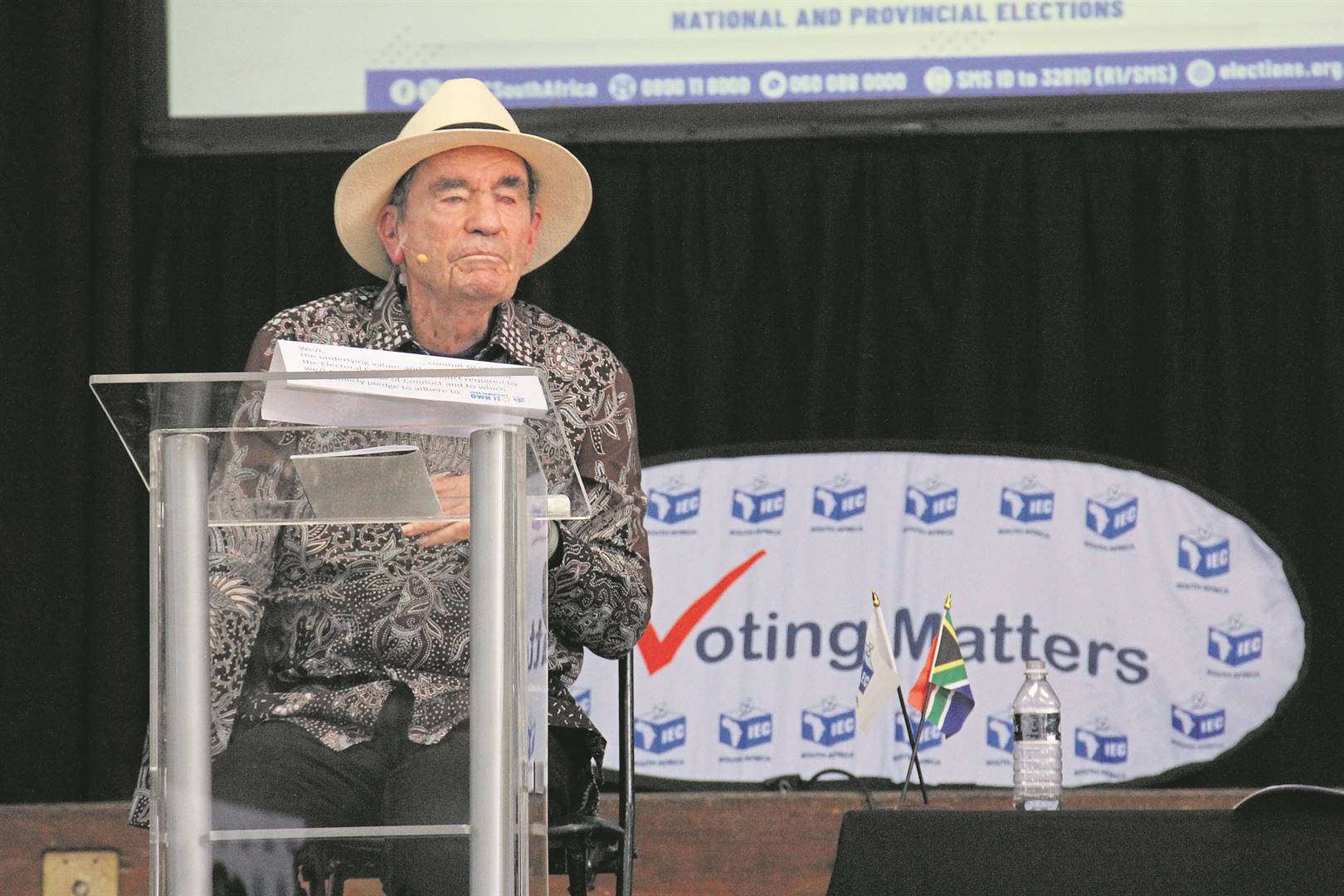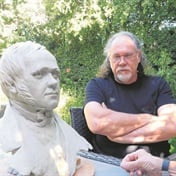
Surviving an assassination attempt, an author of the current electoral system and one of the first constitutional court justices, Judge Albie Sachs has lived through several monumental and historical moments in the South African electoral landscape.
“There is so much history in our history. So many people from so many different backgrounds were involved in our history,” he says.
A supreme court advocate at the time, instead of keeping clients out of jail, he found himself behind bars. He was imprisoned in solitary confinement without charges or able to communicate with anyone, with other political freedom fighters.
“I was exposed to sleep deprivation torture. I am isolated, I am alone, and I hear a voice shouting through a window in my solitary cell. I go to that one bar window and I see Captain Van der Westerhuisen. He is apologising to me because after some prisoners had escaped, they had put double locks on all the cell doors of all prisoners. Two policemen had to open the doors. Captain Van der Westerhuisen had something he wanted to do with me, but the second policeman couldn’t be found, so they could not open the door,” he says.
“He looked at me and said, ‘Advocate Sachs, it is election day today in South Africa and we are a democratic country and you have the right to vote’. He shows me the ballot slip and pushes it through the window, past the bars, offering me the right to vote.”
This was before the first democratic election in 1994, though, but with the establishment of the constitution, every person now has the right to vote.
“Because of this constitution, our people are not subjected to detention without trial. Today, we are not subjected to torture by sleep deprivation, or if we are, it can be denounced,” he says.
Sachs is a notable figure in the current electoral and constitutional landscape of South Africa, having been involved in developing the current electoral system first implemented in the 1994 election.
On 7 April 1988, Sachs survived an assassination attempt when he had been bombed, losing his arm in the process. He recalls several other South African anti-apartheid activists including Heloise Ruth First who was assassinated by a parcel bomb in Maputo, Mozambique in 1982, journalist Joe Gqabi’s assassination by the South African Defence Force in Harare Zimbabwe in 1981 and Dulcie September shot to death by a sniper in Paris, France in 1988 - just two weeks before his assassination attempt.
On his release, being based at the University of the Western Cape in 1990, Sachs says the real work began in trying to build up the country ahead of the first democratic elections.
Talks around the need for a constitutional court, the freedoms and parameters of some to vote, were taken into consideration in designing the first electoral model. This included looking at many systems across the world with representability and accountability in mind.
This ended with proportional representation as the main system, the same electoral system we still have in place.
“This is the main way of ensuring that every vote counts equally,” he says.
“The idea was for the first elections we wanted everybody there. The smallest groups there. Normally in other countries, there is a threshold, any party that has less than 3 or 5% can’t be represented, and their votes are discounted. We wanted everybody there. We wanted the left wing and right wing there,” he says.
During his time as a justice on the Constitutional Court bench, Sachs also fought for the right of prisoners to vote, despite the Independent Electoral Commission’s then request to exclude them from the voting process.
The goal was to create a universally accepted constitution, not that it be perceived as an ANC or black man’s constitution.
Referring to a decision on how future elections may be hosted, outside of what we have now Sachs says: “I think the country is now ready for something much more comprehensive than just one or two independents being allowed to stand here and there... The great thing about the vote is, that you have a parliament and parliament can decide. Maybe the best time to decide is when there is nobody in charge.”
Power to the people, through parliament, was something achieved by not using some of the other electoral systems in the world, he says.
“As one of the authors, I feel proud that we made that option. We have had changes of presidents, not presidents for life. Not presidents extending beyond their two terms,” he says. “For us, the centrality of parliament, the people who have voted into office, were central to our very conception of not the personalised rule, but rule by the people through parliament.”
Sachs encourages all to exercise this right to vote.
Adapting a quote from then ANC leader Albert Luthuli, “The road to freedom is via the cross”, Sachs jokes: “The road to freedom is via the cross, the cross on the ballot slip.”
Twenty million people voted for the first time in 1994, giving them dignity and citizenship, says Sachs.
“The right to vote has a much deeper meaning in our country. It was a disenfranchisement coupled with dispossession of the land that created that huge system of oppression. We were an independent country from 1910, but April 27 1994 was more than just our first democratic election, it was our independence day.”




 Publications
Publications
 Partners
Partners


























